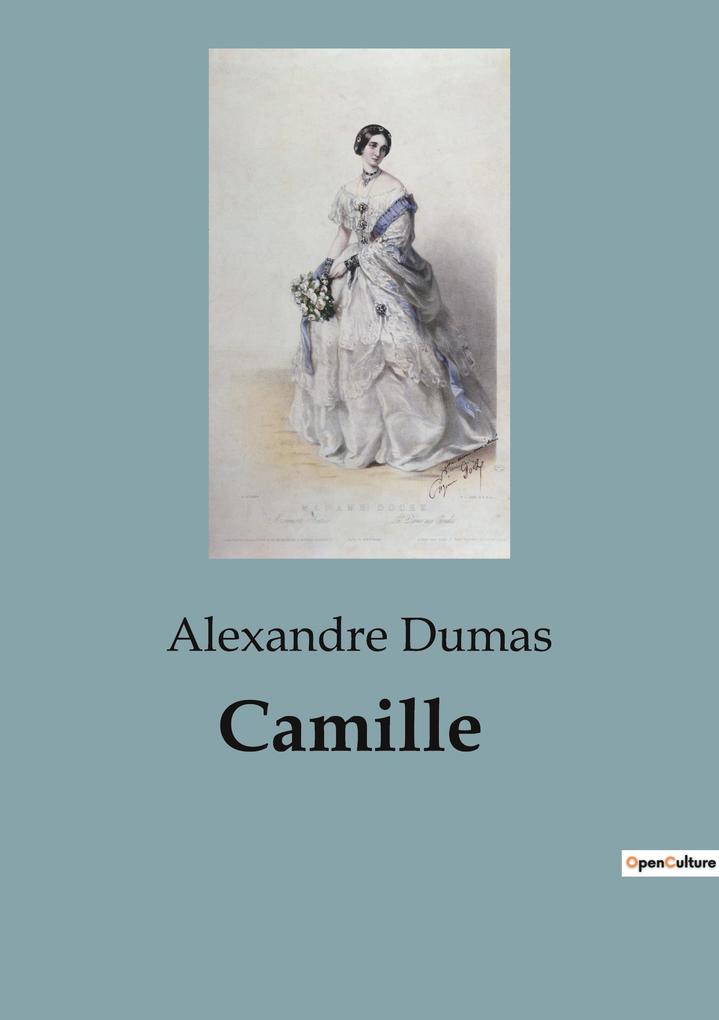
Zustellung: Mo, 30.12. - Do, 02.01.25
Versand in 2 Tagen
VersandkostenfreiBestellen & in Filiale abholen:
"Camille" tells the story of Marguerite Gautier, a beautiful and enchanting courtesan in Paris during the mid-19th century. Despite her reputation as a high-society courtesan, Marguerite is known for her wit, charm, and intelligence. She is also celebrated for her elegance and her love for the beautiful white camellias she always wears.
The novel is narrated by a young and somewhat naïve man, Armand Duval, who falls deeply in love with Marguerite. Armand is from a respectable family, and he's captivated by Marguerite's beauty and the sadness he perceives in her. Against the conventions of society, Armand pursues a romantic relationship with Marguerite.
Their love affair is passionate and sincere, but it is complicated by societal norms, particularly the judgment and disdain Marguerite faces as a courtesan. Marguerite must navigate her feelings for Armand while trying to balance her relationships with wealthy patrons who financially support her lavish lifestyle.
The novel explores themes of love, sacrifice, social class, and the hypocrisy of society. Marguerite's selfless and genuine love for Armand leads to heartbreak, and she must make a heartbreaking decision that has tragic consequences.
"Camille" is celebrated for its poignant portrayal of a love affair that transcends social conventions and the sacrifices individuals are willing to make for love. It is a novel that showcases the complexities of human emotions and the challenges faced by individuals who dare to defy the norms of their society for the sake of true love.
The story of Marguerite and Armand has been adapted into various plays, operas, and films over the years and remains a beloved and enduring classic of French literature.
The novel is narrated by a young and somewhat naïve man, Armand Duval, who falls deeply in love with Marguerite. Armand is from a respectable family, and he's captivated by Marguerite's beauty and the sadness he perceives in her. Against the conventions of society, Armand pursues a romantic relationship with Marguerite.
Their love affair is passionate and sincere, but it is complicated by societal norms, particularly the judgment and disdain Marguerite faces as a courtesan. Marguerite must navigate her feelings for Armand while trying to balance her relationships with wealthy patrons who financially support her lavish lifestyle.
The novel explores themes of love, sacrifice, social class, and the hypocrisy of society. Marguerite's selfless and genuine love for Armand leads to heartbreak, and she must make a heartbreaking decision that has tragic consequences.
"Camille" is celebrated for its poignant portrayal of a love affair that transcends social conventions and the sacrifices individuals are willing to make for love. It is a novel that showcases the complexities of human emotions and the challenges faced by individuals who dare to defy the norms of their society for the sake of true love.
The story of Marguerite and Armand has been adapted into various plays, operas, and films over the years and remains a beloved and enduring classic of French literature.
Produktdetails
Erscheinungsdatum
12. Oktober 2023
Sprache
englisch
Seitenanzahl
160
Autor/Autorin
Alexandre Dumas
Verlag/Hersteller
Produktart
kartoniert
Gewicht
216 g
Größe (L/B/H)
210/148/9 mm
Sonstiges
Paperback
ISBN
9791041820924
Entdecken Sie mehr
Bewertungen
0 Bewertungen
Es wurden noch keine Bewertungen abgegeben. Schreiben Sie die erste Bewertung zu "Camille" und helfen Sie damit anderen bei der Kaufentscheidung.









